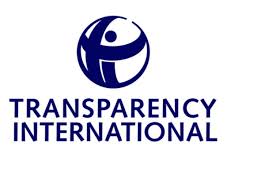 Nearly 1,200 people from 130 countries gathered in Putrajaya for three days ending today to discuss one of the world’s biggest challenges: how impunity enables the spread of corruption. Delegates came together to find the most effective strategies to stop impunity and hold to account those who benefit from the abuse of power, secret deals and bribery.
Nearly 1,200 people from 130 countries gathered in Putrajaya for three days ending today to discuss one of the world’s biggest challenges: how impunity enables the spread of corruption. Delegates came together to find the most effective strategies to stop impunity and hold to account those who benefit from the abuse of power, secret deals and bribery.
With the theme “Ending Impunity: People. Integrity. Action.” the 16th biennial International Anti-Corruption Conference (IACC) brought together representatives from the public, private and non-profit sectors to explore how impunity enables the spread of grand corruption.
In over 55 sessions there was a special emphasis on corruption in development, clean business and illicit flows, investigating and exposing the truth, and grand corruption. The final declaration (available here) called on G20 governments to act against the enablers of corruption and adopt public registries of beneficial owners of companies.
“In Putrajaya we came together to build alliances, to collect the newest ideas on how to prevent corruption from our colleagues, and meet new anti-corruption comrades as we renewed ourselves for a tough battle with the forces of corruption,” said Akere Muna, Chair of the International Anti-Corruption Conference Council.
Transparency International Chair José Ugaz, IACC Council Chair Akere Muna, Malaysia’s Minister in Charge of Governance and Integrity Senator Datuk Paul Low Seng Kuan, Datuk Hj Mustafar Ali, Deputy Chief Commissioner for Prevention, Malaysian Anti-Corruption Commission and the President of TI Malaysia, Dato’ Akhbar Satar opened the Conference.
Other prominent speakers included, Patrick Alley, co-founder, Global Witness, Sarah Chayes, Senior Associate, Carnegie Endowment for Peace, Kevin Jenkins, President and CEO, World Vision International, Pascal Lamy, former General Director, World Trade Organisation, Thuli Madonsela, Public Protector, South Africa, Kumi Naidoo, Executive Director, Greenpeace, and Salil Shetty, Secretary General, Amnesty International.
Under the IACC Game Changers Initiative, the conference invited 26 young journalists from Fiji to Kenya to report on the 16th IACC. Their stories can be read here. It also called on a mix of technology experts and the IACC social entrepreneurs to showcase tools during a three day technology hub aiming to develop innovative ways to expose and fight corruption.
The IACC, first held in 1983, has evolved into the leading global forum on governance and anti-corruption. The conference fosters cooperation and innovation in developing tools to tackle corruption in government, business and society. The 16th IACC was organized by the IACC Council in cooperation with Transparency International and TI-Malaysia, and was generously hosted by the Government of Malaysia and the Malaysian Anti-Corruption Commission.
